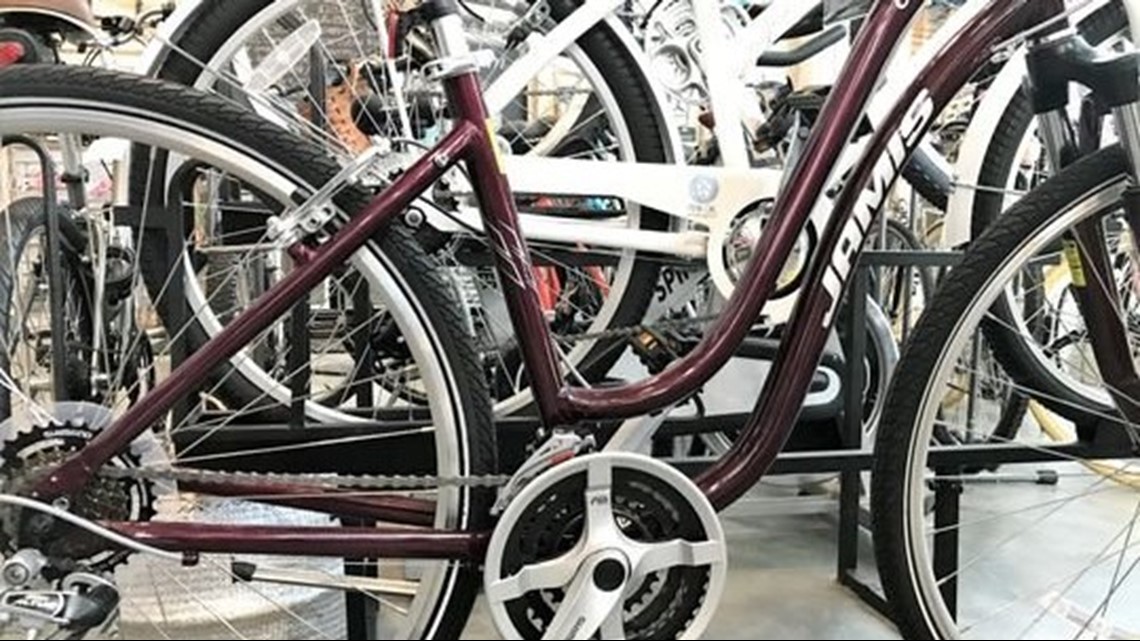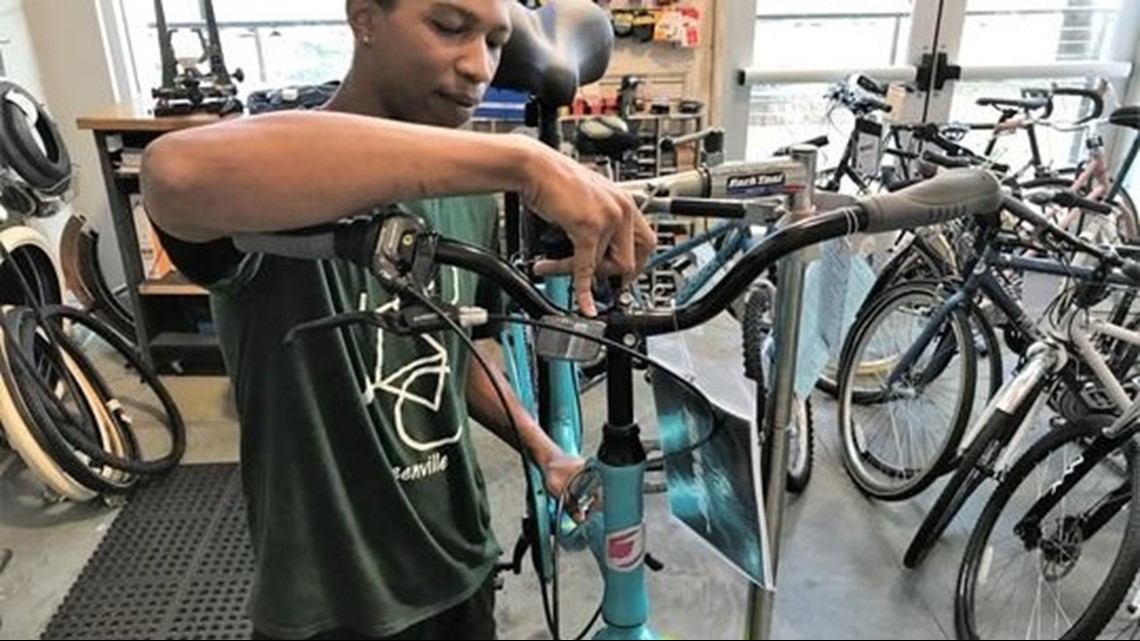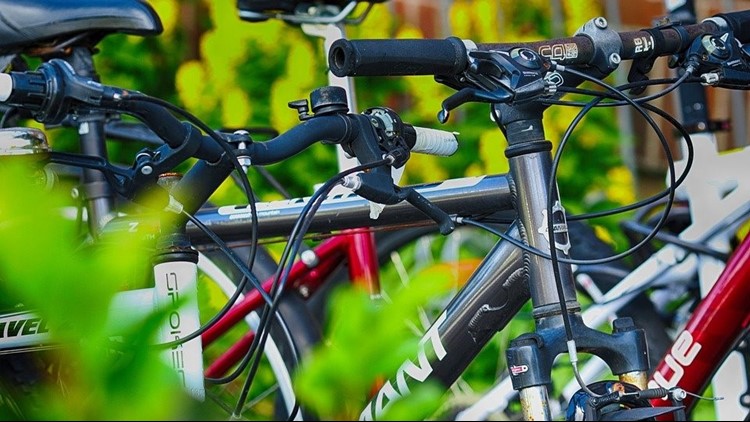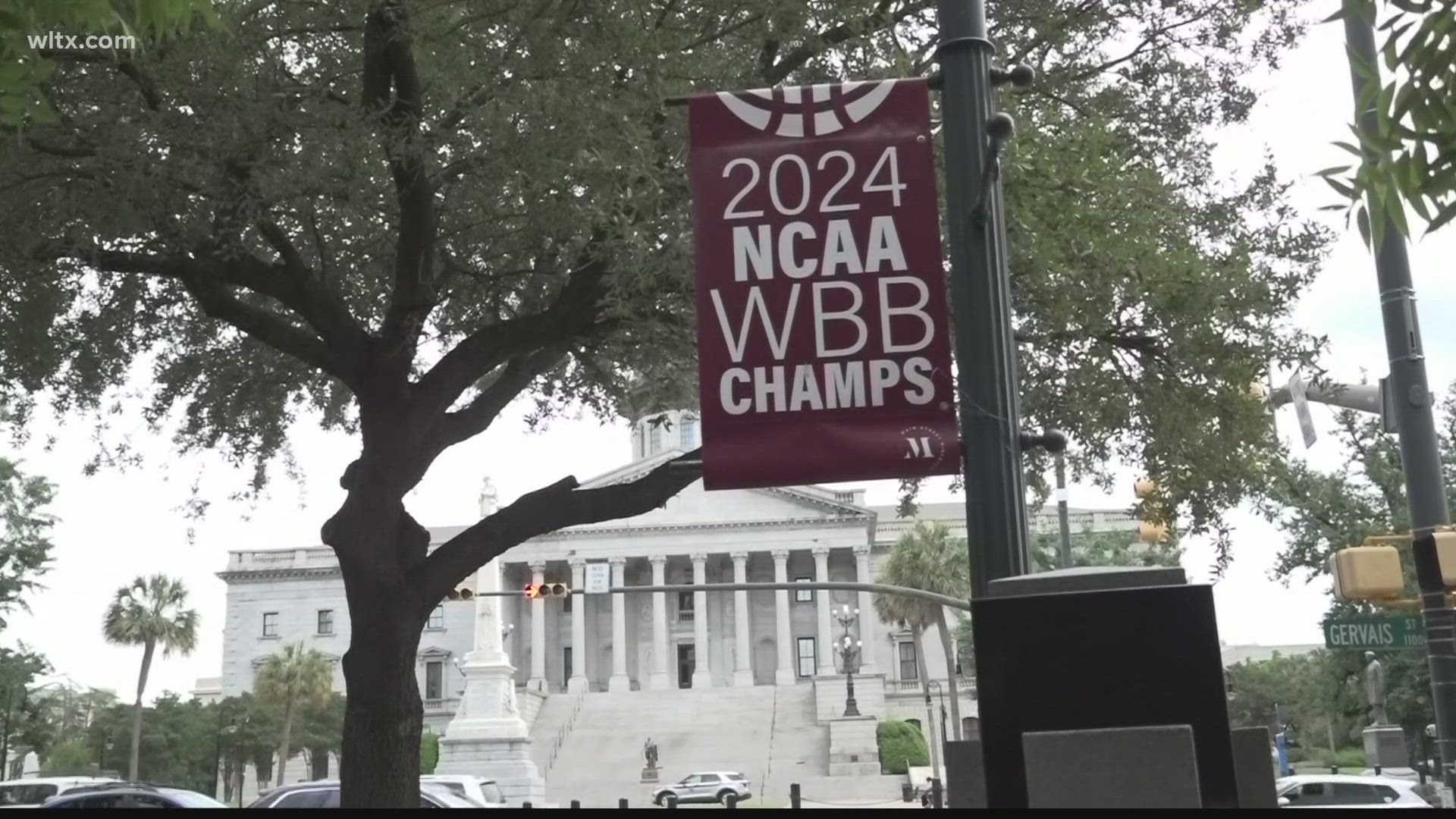For anyone wanting to put a bike under the Christmas tree, the time to buy might be now.
Robin Bylenga, owner of the Pedal Chic bike shop in downtown Greenville, said that in the wake of tariff increases on Chinese bikes and bike parts that went into effect Monday, inventory on pre-tariff bike models will likely be depleted before the holiday season gets started — and prices will be going up on everything else any day now.
"Typically people wait until the last two weeks before Christmas to buy their bikes," Bylenga said. "I wouldn't do that this year."
Local bike shops are waiting this week to hear from manufacturers about what the latest round of American tariffs on Chinese imports — $200 billion worth — will do to their pricing.
More than 90 percent of finished bikes imported into the United States — and 97 percent of kids bikes — come from China, said Alex Logemann, the director of state and local policy for the industry group People for Bikes.
"We don't make very much here," Logemann said.
Bikes and bike-specific parts like spokes, rims, frames and wheels accounted for $1 billion in imports from China last year, he said, and shifting production elsewhere would require a major shift in know-how and manufacturing capacity.


"Bikes, wheels, parts — everything is made in China," said Rich Hincappie, co-owner of Hincappie Sportswear, a clothing line that supplies the bike industry.
The impact is not limited to retailers: Kent International opened a bike assembly plant four years ago in Manning, South Carolina. More than 90 percent of its components come from China, said Scott Kamler, president of Kent International.
"Every other country is at a higher price, so all the tariffs are doing is making everything more expensive until we can find quality product in another country," Kamler said. "This is not something that is easily done."
If tariffs were only on complete bikes, Kamler said, it would encourage more companies to be like his and assemble bikes in the U.S., "creating plenty of jobs."
With the 10 percent increase on Chinese imports imposed this week, that could mean $100 million in added costs annually to American bike buyers. With another 15 percent tariff increase on Chinese imports set to go into effect Jan. 1, that annual cost to American consumers would rise to $250 million.
The biking industry is one of many affected by tariffs in a trade war that dates back to when the Trump administration increased import taxes on washing machines in January.
In the months since, the administration increased tariffs on most steel and aluminum imports worldwide in March, and increased tariffs on $50 billion in other Chinese goods earlier this summer (including an additional 25 percent tariff on electric bikes). China, Mexico, Canada and the European Union have countered with tariffs of their own on American goods.


More than 5,700 products and components imported from China are affected by this latest round of tariffs, which were anticipated for weeks before an official announcement from the U.S. trade representative on Sept. 17 clarified which products would be affected and when.
Tariffs imposed today and in two earlier rounds in June and August affect roughly half of all goods China exports to America. It was enough for Walmart to issue a warning late last week that it might have to increase prices.
People for Bikes compiled a list of 33 bike-specific goods and components affected by today's tariffs. These were on top of an existing 11 percent tariff on imports of complete bikes, Logemann said. This means that as of Jan. 1, the combined tariffs will cost customers an extra 36 percent on more than 90 percent of all bikes on the market, he said.
"I'd say the hardest part for our industry is we already pay a pretty high tariff on our goods to begin with," Logemann said.
In the margin-lean world of bike retail, consumers will have to bear the brunt of the increases, Bylenga said.
"Somebody's got to eat it," Bylenga said. "There's not enough margin to absorb a 25 percent increase."
Matt Rinella, owner of FreeHub Bicycles in Greenville, said he expects an email today from suppliers such as Giant and Cannondale on what the new prices will be.
"Giant has facilities in China and Taiwan," Rinella said. "I anticipate something changing in my prices this week."
Multiple variables are in play, Rinella said — including China's currency dropping in value more than 8 percent since April — so the outcome remains uncertain.
"So the question is how does that end up affecting us in America?" Rinella said. "Do manufacturers increase prices anyway, and will the currency stay that low? Most bike companies are a conglomerate of many companies. So what happens? Do they start assembling in a different country to avoid tariffs?"
The Trump administration has said the tariffs on Chinese imports are the result of a six-month investigation launched in the summer of 2017 that found manufacturers in China were stealing intellectual property and advanced technology from American companies.
Up until the mid 1990s, American manufacturers produced up to 12 million bikes a year, Logemann said. At about that time, China entered the World Trade Organization, sucking up supply chains worldwide. The bike industry came to the United States Trade Commission seeking tariff protection to maintain domestic manufacturing, but those requests were not granted, he said.
"Now the industry is getting hit from the other side," Logemann said.
The state of South Carolina imported $41.3 million in bikes and $9.4 million in bike components from China in 2017, according to a Greenville News review of U.S. Census import data. Components shipped to the Palmetto State included $2 million worth of bike frames, $1.8 million in bike-tire inner tubes and $754,000 in bike rims and spikes. All will be subject to the 10 percent import tax, which will increase to 25 percent in January and add $12.6 million in costs to South Carolina businesses and consumers.



